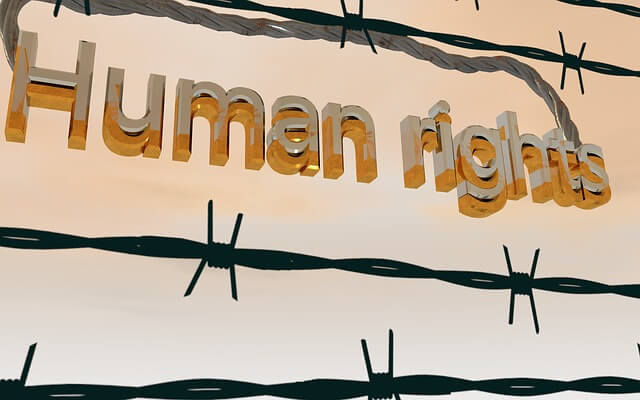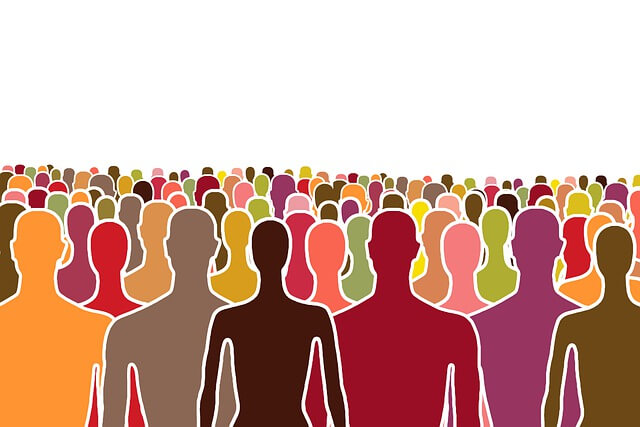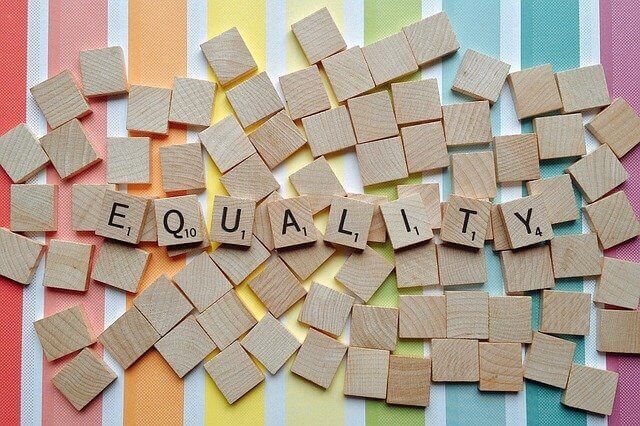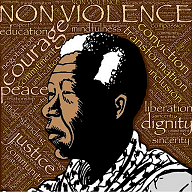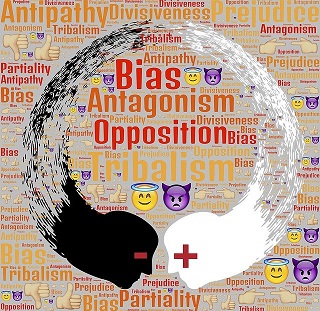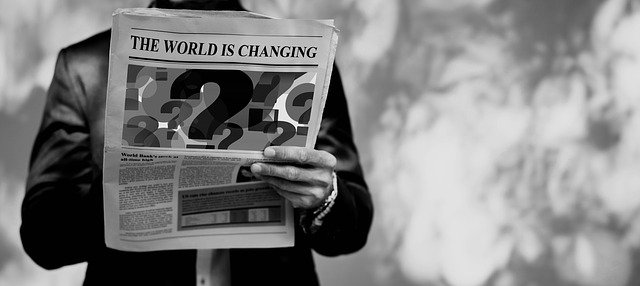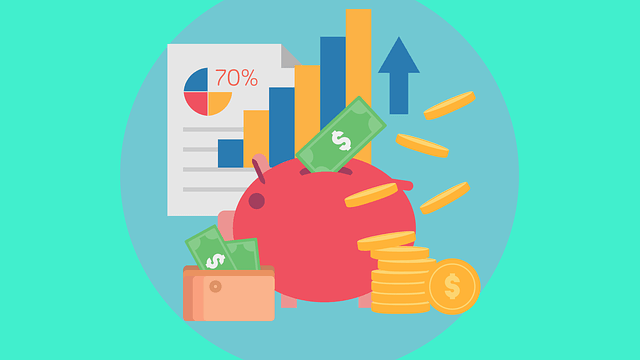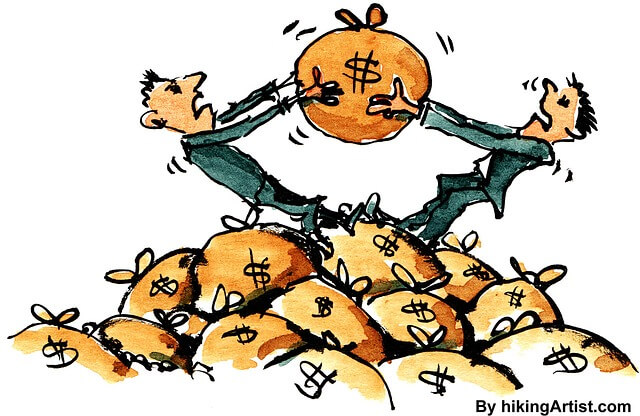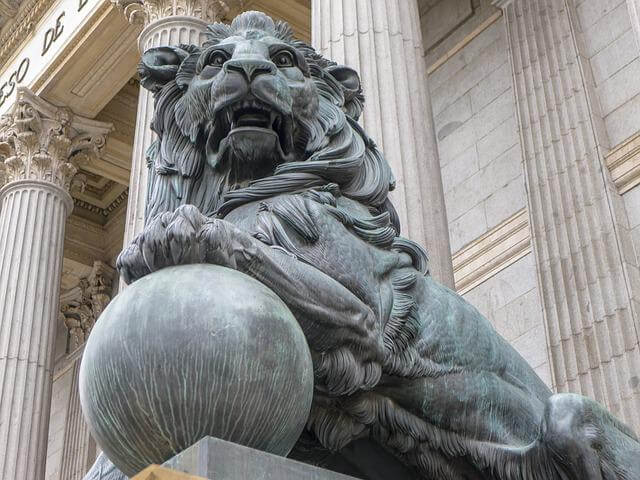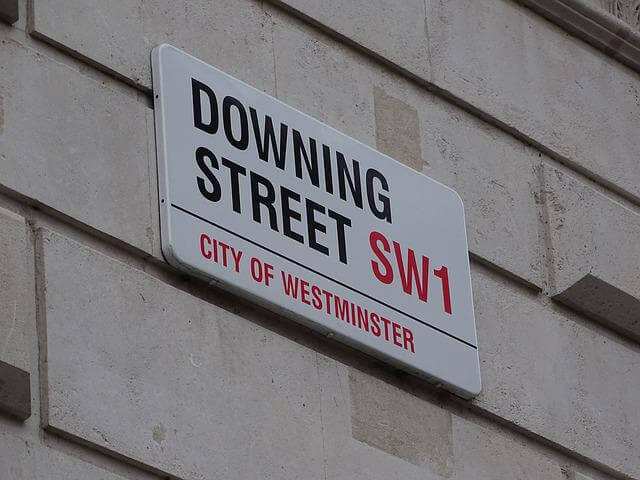government
المقررات الدراسية موسومة بـ "government"
Digital Transformation
In this course, learn about Industry 4.0 and Digital Transformation.
Intoduction
The digital transformation has become very important, it is now responsible for changing industry and adapting it to a connected industry.
The following definitions will help during this session:· Programmable Logic Controllers (PLC) – an industrial solid-state computer that makes logic-based decisions for automated processes based on monitored inputs and outputs
· Cloud Computing – the delivery of computing services over the Internet
· Artificial Intelligence – the ability of machines or computer systems to learn and adapt similarly to humans
· RDA – Remote Database Access
· RFID – Radio Frequency Identification
You we will learn
· Explore Industry 4.0· Discuss how the Internet of Things (IoT) and 5G enable Industry 4.0
Human Rights
Introduction
Human rights are rights we have simply because we exist as human beings - they are not granted by any state. These universal rights are inherent to us all, regardless of nationality, sex, national or ethnic origin, color, religion, language, or any other status. This means that we are all equally entitled to our human rights. This principle, as first emphasized in the UDHR - Universal Declaration of Human Rights (UDHR) - is repeated in many international human rights conventions, declarations, and resolutions.Human rights are the basic rights we all have simply because we are human. A right is a legal entitlement
to something. There are fundamental rights and freedoms that everyone in the UK is entitled to.
Identify what you think counts as a “right” from the list below:
· Money
· Education
· Employment
· Privacy
· Car
· Marriage
· Phone
· Vote
· House
· Life
· Freedom
Inequality
Learn about inequalities in society including poverty, health and age. This course is ideal for intermediate learners.
Introduction
Inequality can be found in most societies as it is the result of resources being shared out unequally among people. Resources are usually given out according to social characteristics such as age, gender and disability.These characteristics can come from:
· Ascribed characteristics which are assigned at birth, or an automatic development at some point and includes factors such as age, gender or place of birth
· Achieved characteristics which are earned or chosen and involves factors such as level of education and marital status.
Resources that are distributed can include the following:
· Income or wealth, where there is economic inequality
· Social power, meaning the right to be an authority figure or to have a say
· Natural goods, such as parks or green areas
· Public goods, which can include: education, housing, transport, credit (such as cards, store cards, loans or mortgages) and banking
You will learn
- What is inequality in society
- Inequality in economic status
- How economic inequality is measured
- The meaning of poverty
- inequality in health
- Inequality in age
How Public Services are Affected by Changes in Society
Learn more about how public services are affected by changes in society. This course is ideal for intermediate learners.
Introduction
In the UK there are currently more people here than there has ever been, and we are all living for longer; this will affect our Public Services.What do you think the effects of this will be on the following Public Services?
• Border Force
• Police
• Paramedics
• Local councils
Social changes also affect the levels of use our Public Services have.
Examples of social change are:
• The growth of an ageing population
• Patterns of health/illness
• Immigration
These changes are clearly going to affect the Public Services. It may mean that these Public Services are relied upon more than ever, in order to keep up with the demands of our changing society.
You will learn
- Population growth
- Changes in use and levels
- Strains on Public Services
- Attitudes towards Public Services
Good Citizenship
Learn more about what good citizenship entails. This course is ideal for intermediate learners.
Introduction
A good citizen is someone who respects other people. They are helpful and considerate; they listen to the points of views of others; they are mindful of the environment; they promote fair values and standards, and they participate in society.
That is a lot for one person to do and try to achieve though. So we will break each section down and look at them in more detail.
You will learn
- How you can show respect for others and yourself
- How you can become a good citizen by participating in society and volunteering
- The qualities of good citizenship
Equal Opportunities
Learn about equal opportunities and their impact. This course is ideal for intermediate learners.
Introduction
The public sector equality duty, which falls under the Equality Act 2010, prevents discrimination on the grounds of the protected characteristics.
There are several functions that are important to the equality duty. Largely it makes sure that everyone involved in the public sector has the same and equal opportunities – whether they possess any protected characteristics or not.
Equality duty functions are also known as the three aims of equal opportunities. These aims are:
1. To get rid of all unlawful treatment described by the Act (discrimination, harassment, and victimisation).
2. To advance equality and opportunity between those who have a protected characteristic and those who do not.
3. To foster good relations between people who share a protected characteristic and those who do not.
You will learn
- The public sector equality duty
- Equality duty functions
- Benefits of equal opportunities
- Equal duty requirements
- The impact of equal opportunities
Anti-Discrimination
Learn about anti-discrimination and how it can affect recruitment and training. This course is ideal for intermediate learners.
Introduction
Anti-discrimination is the prevention of unfair treatment because of age, sex, and religion, among other things. Another session covers unequal treatment which is called discrimination, and that is against the law.
It is important that anti-discrimination practices are followed so that this treatment can be avoided, especially within recruitment and employment.
There are several stages when recruiting or employing someone:
· Developing the job/placement description
· Advertising
· Application process
· Shortlisting
· Interviewing
All these stages need to be carefully considered when thinking about how to avoid discrimination.
You will learn
- What is anti-discrimination
- How anti-discrimination affects recruitment
- How anti-discrimination affects training
- How to deal with grievances
Discrimination
Learn about discrimination, protected characteristics and exceptions. This course is ideal for intermediate learners.
Introduction
Discrimination is treating a person, or particular group of people, differently from the way in which you treat other people, because of a particular characteristic such as skin colour, gender and race. It is against the law in the UK to discriminate against anyone based on nine ‘protected characteristics’.You are legally protected from discrimination by the Equality Act 2010.
You are also protected from discrimination if:
• You are associated with someone who has a protected characteristic, e.g. a family member or friend
• You have complained about discrimination or supported someone who has
You will learn
- What is discrimination?
- Protected characteristics
- Types of discrimination
- Exceptions
Aspects of Citizenship
Introduction
The world is divided into countries. These are political regions, which means people have decided on the boundaries and borders. Each country has a government which is responsible for managing resources, such as taxes and how to spend them, and the organisation of their society. They are also responsible for the protection of their citizens.The UK contains four countries:
· Scotland. Capital: Edinburgh. Scotland has a devolved government that can only make laws for Scotland and can decide how education and healthcare is provided. They also send 59 representatives to the English Parliament.
· Northern Ireland. Capital: Belfast. Northern Ireland has a devolved government that can only make laws for Northern Ireland that includes policing, education, health, and housing. They send an additional 18 representatives to the House of Commons each election.
· Wales: Capital. Cardiff. Wales has a devolved government that can only make laws for Wales on topics that include tourism, education, health, and housing. They send 40 MPs to the House of Commons.
· England. Capital: London. London is the capital city of the UK. This is where the nation’s government sits at the Palace of Westminster. There are two houses which debate and create bills.
You will learn
•Why citizenship is important in society•The rights of citizens in society
• Citizenship and equality
The Impact of Change in Society
Learn more about the different changes in society and how these have impacted public services. This course is ideal for intermediate learners.
Introduction
Over time society has changed dramatically. Think back 50, 60, 70 or 100 years – how do you think society would have looked?Here are some points of changes :
Medicine has developed over time. Illnesses that had no cure are now curable and medical facilities have improved.
Technology now enables you to contact people all around the world.
Society has become more diverse due to migration and better transport.
Demographics relate to the structure of populations. This means that when you think about the demographic of somewhere, you are looking at how their society is made up in terms of the people who live in it. There have been many changes in society and there are positive and negative aspects of demographic change.
Here are some examples of demographic changes:
• Growth of an ageing population
• Patterns of health and illness
• Immigration
• Social inequality
You will learn
- Different changes that have happened in society
- How these changes in society have impacted on the Public Services
- Changes in demographics
- Ageing population
- Immigration changes
The Cost of Public Services
Learn how much public services cost and how charities contribute to them. This course is ideal for intermediate learners.
Introduction
The top three spending categories include:· Social protection
· Health
· Education
The following categories explain where the Government spends money:
Social protection costs £222 billion (the figure is for training purposes only)
The most money is currently spent on social protection (or welfare) which helps those who are disadvantaged, including:
o Pensions
o Disability benefits, such as cars, parking and prescriptions
o Housing, such as accommodation and upkeep
o Unemployment benefits
o Family benefits, for instance tax credits
Social security spending in UK
Over 55% of social security expenditure goes to pensioners.The government is forecast to spend £121 billion on pensioners and £94 billion on working age people and children this year. In 2017 to 2018 £121 billion was spent on pensioners and £96 billion was spent on working age people and children.
You will learn
- How much public services cost the government
- The top three spending categories
- How charities contribute to public services
Rights within the Criminal Justice System
Learn more about rights within the criminal justice system. This course is ideal for intermediate learners.
Introduction
As we look at how Public Services support the rights and responsibilities of citizens, it is important to understand a citizen’s rights in relation to the Public Services.We will now look at the rights of citizens within the criminal justice system.
Every citizen has basic rights, for example if you are arrested you are entitled to legal representation.
Here is some of the information relating to your rights when you’re arrested:· Getting free legal advice
· Telling someone where you are
· Having medical help if you’re feeling ill
· Being given a notice that tells you about your rights
· Access to an interpreter, if needed
· For your possessions to be kept locked away safely
You will learn
- Legal representation
- Legal aid
- A fair trial
Public Services Affected by Finances and Social Inequality
Learn more about how public services are affected by finances and social inequity. This course is ideal for intermediate learners.
Introduction
The Public Services rely on funding from the Government to survive. The Government has to choose how much money it allocates to each service, based on the money they have. When the Government needs to save money, they can often make cuts to different Public Services.What effect can it have?
· Slower response times
· They may cut jobs
· Reduced hours
· Station closures
· Reduced training
· Removal of specialist equipment that is expensive to run
You will learn
- Government finance
- Fire service
- Police
- Social inequality
Promoting Good Citizenship
Learn more about the promotion of good citizenship in the public services sector. This course is ideal for intermediate learners.
Introduction
The Public Services view good citizenship as an important part of maintaining a good society.Therefore, Public Services want to maintain good citizenship by:
· Having a desire to improve society
· Protecting individuals
· Protecting the vulnerable
· Contributing to society by getting involved
You will learn
- How public services promote good citizenship
- How when working in public services you will promote good citizenship
Aspects of Government Policy
Introduction
The Government is responsible for deciding how the country is run and for managing things on a day to day basis.They set taxes, choose what to spend public money on, and decide how best to deliver public services, such as:
· The National Health Service (NHS)
· The police and armed forces etc.
· Welfare benefits, like the state pension
· The UK’s energy supply
Couple of years ago the Government made a dramatic change to education, that saw the participation age rise from 16 to 18. Before this you were able to leave school at the age of 16.
However, this new policy means that you can leave school at 16, but you must do one of the following until you are 18year old:
· Stay in full-time education, for example, at a college or sixth form
· Start an apprenticeship or traineeship
· Spend 20 hours, or more, a week working or volunteering, while in part-time education or training
You will learn
- The government
- Education
- Minimum wage
- Social welfare
Individual Rights-Public Service
Learn more about the right of public service users and why they are important. This course is ideal for intermediate learners.
Introduction
In life we need to use the Public Services many times for different reasons. It is important that when we need these services that they are of a high quality.For example, if you were to call the police in an emergency and they did not turn up until the next day, this could be dangerous and would be an example of poor quality service.
Sometimes, the quality of a services isn’t as good as it should be. There have been several real-life incidents where a victim of a crime has called the police, and there has been a serious delay in officers attending the crime scene. This is typically seen as unfair treatment and it usually results in compensation.
You will learn
- Public services users rights
- The rights of Public Service users and why they are important
- The importance of high quality public services and examples of this
- Why it is important to be treated without discrimination when using public services
Growth of Information and Communications Technology
Learn more about growing information communication technology and the impact it has in society. This course is ideal for intermediate learners.
Introduction
Having the Internet has changed the way we do things. The Internet can now be accessed almost anywhere on PCs, laptops, phones and tablets.
The growth of the Internet and social media now means we can access information straight away, almost anywhere in the world.
This means we no longer have to wait to watch the news. It also means that we are constantly kept up to date
You will learn
- The internet
- Accessing information
- Social media
- How do public services use social media?
- What are the benefits?
Impact of Public Services on Society
Learn about how public services are paid for and their impact on society. This course is ideal for intermediate learners.
Introduction
Why do we have Public Services? Public services often provide goods or services that are not normally provided by the private market. It makes sense that the private sector is not allowed to provide a police or national defence service, as these areas should not be administered for the sake of profitable gain (for money). Although this is not the case for all Public Services, some services are run by private businesses, for example, prisons.
You will learn
- Paying for public services
- How public services are used
- Reforming public services
The Role Of Government Departments
Learn about the role of government departments in creating policy. This course is ideal for intermediate learners.
Introdution
The Prime Minister is the head of the UK Government and is responsible for the formation of all Government policy, and the decisions that are made in the relation to Government policy.The Cabinet Ministers are the senior members for the Government. It is their role to discuss the most important issues for the Government. They do this every week in Parliament. There are 22 Cabinet Ministers at the time of writing, although this number can fluctuate between 21 and 23.
The Ministers are chosen by the Prime Minister from the members of the House of Commons and the House of Lords. They are responsible for the actions of their department. This means they are responsible not only for the successes in their department, but also the failures. There are 97 other Ministers.
Housing Policy
Learn about affordbable housing policy case study. This course is ideal for intermediate learners.
Introduction
Policies which are not specific to a particular public service can still have an impact.Housing policies can have a huge impact on local infrastructure, which in turn can affect a variety of different public services. Housing policies are set centrally by the Department for Communities and the local government. These policies are then implemented by local councils.
You will learn
By the end of this course you will be able to:
● State the need for the affordable housing policy● Identify the impact of the affordable housing policy on public services



